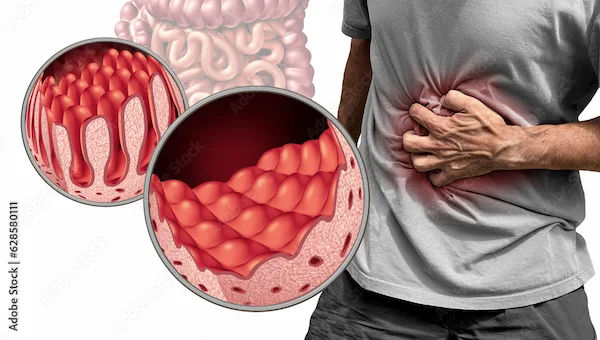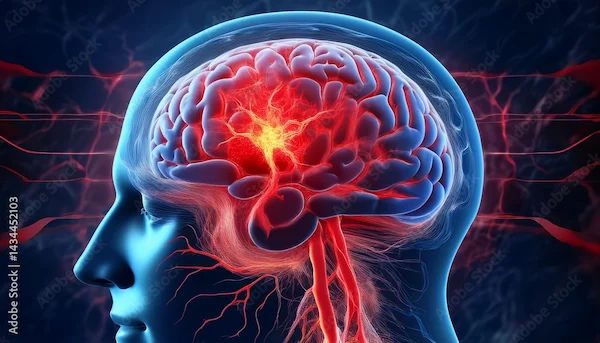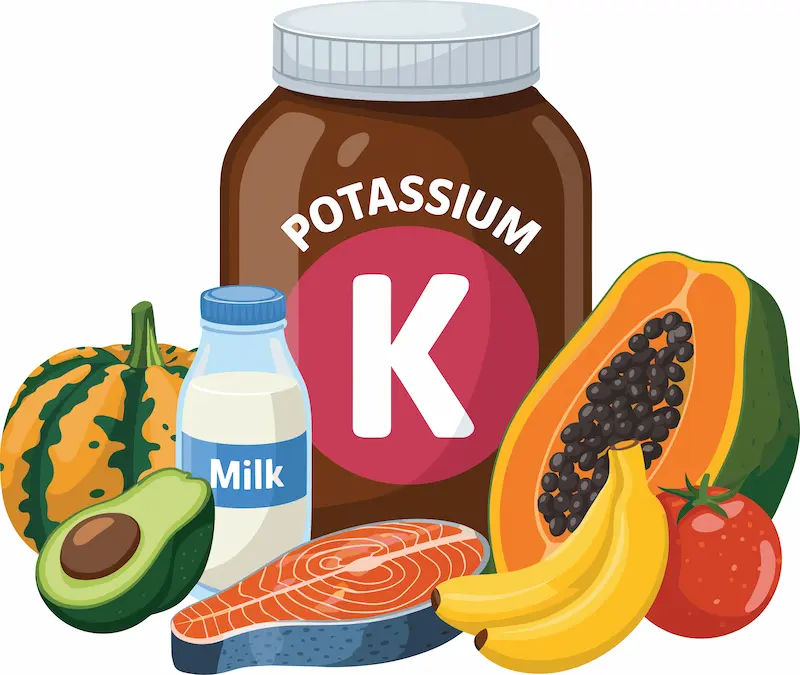Guide to Urological Emergencies What You Need To Know
Learn to recognise critical urological emergencies, their warning signs, and the urgent actions to take to protect your urinary and reproductive health.

Written by Dr. M L Ezhilarasan
Reviewed by Dr. Rohinipriyanka Pondugula MBBS
Last updated on 13th Jan, 2026

Introduction
Imagine a pain so sharp in your side that you can’t sit still. Or the terrifying moment you realise you can’t urinate, despite a painfully full bladder. These are just two examples of urological emergencies—sudden, serious conditions affecting your urinary system or genitals that require immediate medical care. Unlike a mild UTI or occasional discomfort, these issues signal that something is critically wrong. Ignoring them can lead to permanent damage, loss of an organ, or even become life-threatening. This guide will walk you through the most common urological emergencies, their unmistakable symptoms, and the crucial steps you need to take. Knowing the difference between a minor issue and a true emergency could save your health, fertility, or life.
What Qualifies as a Urological Emergency?
A urological emergency is any condition involving the kidneys, ureters, bladder, urethra, or male genitals that requires immediate medical intervention to prevent severe complications. The key differentiator is often the suddenness and severity of the symptoms. While a mild ache might warrant a doctor's appointment next week, a stabbing pain, high fever, or inability to urinate demands a trip to the emergency room now.
The Red Flags You Should Never Ignore
Certain symptoms are universal red flags. If you experience any of the following, seek emergency care immediately:
- Sudden, intense pain in the abdomen, flank (side), back, or genitals.
- Complete inability to urinate despite a strong urge.
- Visible blood or large clots in your urine (gross haematuria).
- High fever with chills, especially when combined with back pain or burning urination, which can indicate a spreading
infection. - Signs of gangrene in the genital area, such as rapidly spreading redness, swelling, and skin discolouration.
Consult a Urologist for the best advice
Sudden, Severe Pain: When It's More Than a Discomfort
Pain is your body’s most powerful alarm system. In urology, specific types of pain point directly to specific emergencies.
Kidney Stones (Renal Colic): The Unforgettable Pain
When a small stone formed in the kidney moves into the narrow ureter (the tube to the bladder), it can cause an obstruction. This leads to renal colic, a pain described as one of the most severe a person can experience. It's typically a sharp, cramping, or stabbing pain in the back or side below the ribs that radiates to the lower abdomen and groin. The pain often comes in waves. You might also experience nausea, vomiting, and blood in the urine. While small stones may pass on their own, a larger obstructing stone can damage the kidney and requires urgent medical treatment for pain control and removal. If you suspect a kidney stone, especially with fever, you must go to the ER.
Testicular Torsion: A Surgical Emergency
This is a quintessential urological emergency, primarily affecting adolescents and young men, but it can occur at any age. Testicular torsion happens when the spermatic cord, which provides blood flow to the testicle, twists. This cuts off the blood supply, causing sudden, severe pain and swelling. The affected testicle may appear higher than normal. Time is tissue. The testicle can become irreversibly damaged within 4-6 hours. This condition requires immediate surgery to untwist the cord and save the testicle. Sudden severe testicle pain is a "go straight to the ER" symptom. Do not wait.
Acute Epididymitis and Orchitis
This is a severe infection or inflammation of the epididymis (the coil behind the testicle) or the testicle itself (orchitis). The pain can be similar to torsion but usually builds up more gradually. However, in its acute form, the pain and swelling can be severe and accompanied by a high fever. A doctor must distinguish this from torsion, as the treatment involves antibiotics, not surgery. If the infection is severe, it can form an abscess that also requires drainage.
When You Can't Urinate: Acute Urinary Retention
Acute urinary retention (AUR) is the sudden and often painful inability to pass urine despite having a full bladder. This is a true mechanical emergency because the bladder can overstretch and be permanently damaged.
Common Causes in Men and Women
In men, the most common cause is an enlarged prostate (benign prostatic hyperplasia or BPH) that completely blocks the urethra. It can also be caused by severe urinary infections, blood clots, or medication side effects. In women, it's less common but can result from severe pelvic organ prolapse, nerve problems, or after surgery.
Why Immediate Catheterisation is Crucial
The immediate treatment for AUR is the insertion of a catheter into the bladder to drain the urine. This provides instant relief and prevents bladder damage. After the emergency is resolved, a doctor will investigate the underlying cause to prevent it from happening again. If you experience a complete urinary blockage, go to the nearest emergency department immediately.
Visible Blood in Urine (Gross Haematuria)
While trace blood found only under a microscope can have many causes, gross haematuria—when you can see the blood with your naked eye—is often a sign of a significant problem. The urine may look pink, red, or cola-coloured.
Clots and Cola-Coloured Urine: A Major Warning Sign
Seeing blood clots in urine is particularly concerning. It can indicate a tumor in the bladder or kidney, a severe infection, or significant trauma. Even without clots, visible blood demands a prompt and thorough urological evaluation to rule out serious conditions like cancer. While it may turn out to be a large kidney stone or a bad infection, it should never be ignored.
Serious Infections That Can't Wait
Not all UTIs are emergencies. But when an infection ascends from the bladder to the kidneys or spreads to the bloodstream, it becomes critical.
Pyelonephritis: A Kidney Infection Gone Bad
A kidney infection (pyelonephritis) often starts as a bladder infection that spreads upward. Symptoms include a high fever (often over 101°F), chills, nausea, and pain in the back or side. If left untreated, the bacteria can enter the bloodstream, causing sepsis—a life-threatening whole-body response to infection that can cause organ failure and death. Treatment requires strong intravenous antibiotics in a hospital setting.
Fournier's Gangrene: A Rare But Deadly Infection
This is a rapidly progressing, flesh-eating infection of the genitals and perineum. It is a surgical emergency of the highest order. It often starts with redness, swelling, and severe pain that quickly worsens. The skin may develop blisters and a foul smell as the tissue dies (gangrene). Fournier's gangrene spreads with astonishing speed and has a high mortality rate. It requires immediate, aggressive surgical removal of all dead tissue and powerful antibiotics. Diabetes and a weakened immune system are risk factors.
Penile Emergencies: Priapism and Paraphimosis
These conditions affect the penis and require urgent care to prevent permanent damage.
Priapism: A Painful, Prolonged Erection
Priapism is an erection that lasts for more than four hours unrelated to sexual stimulation. It is often painful. The main type, ischaemic priapism, is caused by blood being trapped in the penis, unable to drain. This lack of oxygen can permanently damage the erectile tissues, leading to future impotence. This is a medical emergency requiring treatment within a few hours to "detume" the penis, often by draining the blood with a needle.
Paraphimosis: A Trapped Foreskin
This occurs when the foreskin of an uncircumcised male is retracted behind the head of the penis (glans) and cannot be returned to its normal position. The constricting foreskin cuts off blood flow, causing the glans to become painfully swollen. The swelling then makes it even harder to pull the foreskin forward. This is a urological emergency because the restricted blood flow can lead to tissue death (gangrene) of the glans. Treatment involves reducing the swelling and manually moving the foreskin back into place.
What to Do in a Suspected Urological Emergency
In the face of a potential emergency, staying calm and taking the right steps is crucial.
Step-by-Step Action Plan
Follow these steps immediately in the face of a suspected urological emergency:
- Don't Panic. Take a deep breath. Your clear thinking is essential.
- Assess the Symptoms. Are you experiencing any of the "red flag" symptoms listed above? Is the pain unbearable? Can you not urinate?
- Go to the Nearest Emergency Room. Do not drive yourself if you are in severe pain. Call an ambulance or have
someone drive you. Urgent care clinics are not equipped for most of these emergencies. - Do Not Self-Medicate. Avoid taking painkillers that can thin the blood (like aspirin or ibuprofen) if there is bleeding.
- If a kidney stone is suspected, try to strain your urine to catch the stone for analysis, but only if you can do so without delaying your trip to the hospital.
What Information to Give the Doctor
Be ready to tell the ER staff:
- When the symptoms started.
- The exact location and type of pain (sharp, dull, throbbing).
- If you have a fever and have taken your temperature.
- Your relevant medical history (enlarged prostate, kidney stones, diabetes).
- All medications you are taking.
Conclusion
Urological emergencies are intimidating, but being informed empowers you to act decisively. This guide has outlined the critical warning signs—from the wrenching pain of a kidney stone to the silent danger of urinary retention. The common thread is the need for immediate action. Your urinary and reproductive systems are vital to your overall health and quality of life. Ignoring these severe symptoms or hoping they will go away on their own is a risk you should never take. Trust your instincts. If you feel that something is seriously wrong, it probably is. Your quick response in seeking emergency care can make all the difference in achieving a full recovery. If you experience any of the symptoms described, especially severe testicular pain or an inability to urinate, go to the nearest emergency department or call for an ambulance immediately. For non-emergency but persistent urological symptoms, you can consult a specialist online with Apollo24|7 for initial guidance.
Consult a Urologist for the best advice
Consult a Urologist for the best advice

Dr. Prabir Basu
Urologist
19 Years • MBBS, MS General Surgery, DNB Genito-Urinary Surgery
Jodhpur Park
Dr. Prabir Basu urology clinic, Jodhpur Park
(200+ Patients)
Dr Debanga Sarma
Urologist
10 Years • MBBS, MS (GENERAL SURGERY)M.Ch (UROLOGY)
Guwahati
Apollo Clinic Guwahati, Assam, Guwahati
Dr S K Singhanina
Urologist
25 Years • MBBS/MS/DNB AND MCH UROLOGY
Guwahati
Apollo Clinic Guwahati, Assam, Guwahati

Dr. Pavan Kumar S K
Urologist
11 Years • MBBS, MS , Mch( Urology) DNB (Urology)
Bengaluru
Apollo Clinic, JP nagar, Bengaluru

Dr. Ramesh H
Urologist
16 Years • MBBS, MS , Mch( Urology)
Bengaluru
Apollo Clinic, JP nagar, Bengaluru
Consult a Urologist for the best advice

Dr. Prabir Basu
Urologist
19 Years • MBBS, MS General Surgery, DNB Genito-Urinary Surgery
Jodhpur Park
Dr. Prabir Basu urology clinic, Jodhpur Park
(200+ Patients)
Dr Debanga Sarma
Urologist
10 Years • MBBS, MS (GENERAL SURGERY)M.Ch (UROLOGY)
Guwahati
Apollo Clinic Guwahati, Assam, Guwahati
Dr S K Singhanina
Urologist
25 Years • MBBS/MS/DNB AND MCH UROLOGY
Guwahati
Apollo Clinic Guwahati, Assam, Guwahati

Dr. Pavan Kumar S K
Urologist
11 Years • MBBS, MS , Mch( Urology) DNB (Urology)
Bengaluru
Apollo Clinic, JP nagar, Bengaluru

Dr. Ramesh H
Urologist
16 Years • MBBS, MS , Mch( Urology)
Bengaluru
Apollo Clinic, JP nagar, Bengaluru
More articles from General Medical Consultation
Frequently Asked Questions
1. What is the most common urological emergency?
While it varies by age and gender, some of the most frequently seen urological emergencies in the ER are kidney stones (renal colic), acute urinary retention (often from an enlarged prostate in men), and testicular torsion in younger males.
2. How do I know if my UTI is an emergency?
A simple UTI causing mild burning is not an emergency. However, if you develop a high fever (over 101°F), chills, nausea/vomiting, or severe pain in your lower back or sides, it may have spread to your kidneys (pyelonephritis), which is an emergency requiring immediate medical care.
3. Can testicular torsion fix itself?
It is very rare and unreliable. While a testicle might occasionally untwist on its own (causing intermittent pain), the underlying anatomical problem remains, and it is likely to torsion again. Any suspicion of torsion requires immediate medical evaluation to save the testicle.
4. What should I do while waiting for help with a kidney stone?
Try to stay as calm as possible. Drink water if you can keep it down, but don't force it if you are nauseous. Do not take any blood-thinning pain medication like aspirin or ibuprofen if you see blood in your urine.
5. Is blood in the urine always a sign of cancer?
No, thankfully it is not. Common causes include kidney stones, infections, or an enlarged prostate. However, visible blood in the urine is a major warning sign that must always be investigated by a urologist to rule out cancer or other serious conditions.




